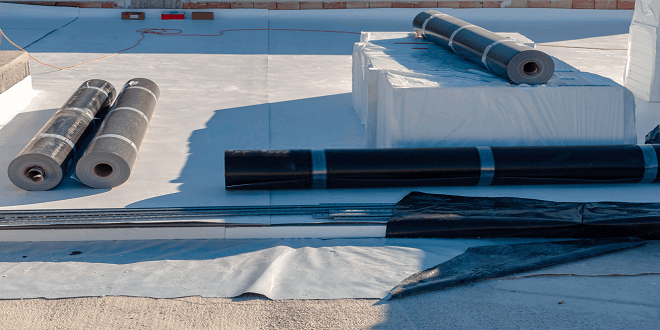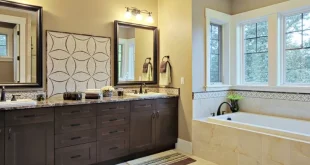Roofs are the most exposed parts of a building to rain and snow. Roof waterproofing for buildings acts as a barrier, protecting the structure from rain. As a result, roof water insulation completed with the proper roof insulation materials will protect the building from rain and snow while preserving the building’s lifetime and performance.
Roof water insulation is a building protection process that employs waterproof materials on building roofs.
Roof waterproofing materials act as a barrier between the building and rain and snow, preventing leaks. As a result, the building is protected by a system that is long-lasting, does not leak or cause mould and fungus growth, and does not degrade in performance.
How Is a Roof Waterproofed?
It is entirely possible that a building with inadequate roof water insulation will leak water when it rains or snows. Water seeps into the building through holes and dents in the roof, causing damage.
Roof insulation should be done by professionals who use the proper materials. Concrete should be waterproofed with roof-appropriate materials, the coating applied, the coating’s edges bevelled, drainage systems installed to prevent the formation of water puddles, and the process completed with a suitable paint or coating material as the top layer.
What are the materials used for roof waterproofing?
To protect roofs from rain and snow, it is critical to use the proper insulation materials. When it comes to roof insulation, another important question asked to define the right insulation system is which waterproofing membranes should be used for the roof.
Asphalt and bitumen-based liquid materials used for waterproofing, membranes, paints, and supplementary materials such as chamfer tapes and mastic come to mind when roof waterproofing materials are mentioned. Aside from that, roof water insulation materials such as tile plating and roof tiles are used.
Waterproofing membranes are among the most popular roof insulation coating materials. Waterproofing membranes are also known as waterproofing covers and liquid membranes made of bitumen.
Bitumen-based waterproofing materials are among the most popular and widely used in the construction industry. Because of its ease of use and price/performance advantage, this material is highly preferred for roof insulation.
Among the most well-known roof waterproofing materials are bitumen-based waterproofing membranes, which are available in liquid and roller forms. Bitumen-based waterproofing membranes are materials that come in rolls and are applied with a welding torch to protect the building from water. Depending on the application, it can be manufactured in a variety of thicknesses and models. Mineral stones can be used to create an attractive appearance on the upper surfaces.
Liquid bitumen-based waterproofing membranes are materials that are typically used as a primer and also provide waterproofing on the surface to which they are applied.
Because of its nature, bitumen is an excellent waterproofing material. It is simple to use and inexpensive. Bitumen-based liquid membrane and roll membrane materials are the most well-known, cost-effective, and high-performance roof insulation materials.
To completely waterproof the roof, bitumen-based waterproofing membranes, chamfer tapes for corner leaks, drainage systems to prevent water accumulation, coating materials to protect the top layer, and various cement-based waterproofing materials to make the concrete waterproof must all be used.
The technical team at Organix will assist you in selecting the best material for this entire waterproofing system. You can look through our products for roof waterproofing materials on our website.
 Naa Songs
Naa Songs





